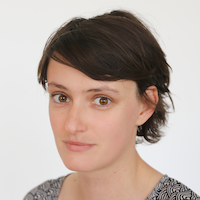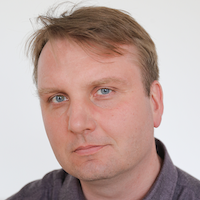Hi from Berlin,
Demography is a topic that has implicitly played a role in many of the subjects we have covered in European Focus. Now, it is time to look at it in a more direct way: Too few people, too large a labour shortfall: this is the problem we face across Europe. For example, in Germany if we had no immigration, the population would shrink, causing serious problems in the labour market. At the same time, the far-right party AfD, which has grown in popularity, is planning mass deportations from Germany.
We find conflicts with demography at their core all over Europe: whether it is Emmanuel Macron calling for a “demographic rearmament” or North Macedonia’s government avoiding headcounts because the results might see distortion by Macedonian and Albanian nationalists. Demography seems to be a battleground everywhere. Still, we hope that you can enjoy this week’s European Focus.
Teresa Roelcke
this week’s Editor-in-Chief

Over the phone, the voice of Léa Marco, 29, sounds confident. “I don’t feel the need to have a child. I feel complete without becoming a mother. I want time for myself.” Almost one in ten French citizens, most of whom are in their twenties and thirties, share her opinion.
“If we still lived in the world I grew up in, I might think about having a child without having to worry all the time about the planet’s future,” says Zelda Hogrel, a 27 year-old teacher, who loves children. “I work in summer camps with kids, but I don’t feel the need to have a child of my own.”
Never since WWII have there been so few births in France. President Macron has called for “demographic rearmament”, making the low birth rate a national struggle. This patriarchal injunction to start a family has angered many women.
“As a teacher, I already feel I’m doing my social duty. I’m not the one who’s going to ‘rearm’ France,” says Léa Marco. “We all know that having a child brings out the inequalities in a couple. Women have to think of everything, take care of their baby and their partner. Moreover, the pressure to be a ‘good parent’ is much stronger than a few decades ago: you have to invest yourself completely in your child.”
Like her friend Zelda Hogrel, she believes there are ways of being part of a family other than having children in a heterosexual couple.
“For the past four years, I’ve been taking a foster child on vacation, and I even considered adopting her when she had problems with her mother,” explains Hogrel. “Investing in the education of a child you love is also something that makes sense to us.”

The number of financial benefits for families in Hungary is unprecedented. Married couples where the wife is under 30 are entitled to an interest free loan of 11 million HUF (30,000 euros) which they don’t have to pay back if they have three children. They can also take out a subsidised loan of 50 million HUF (130,000 euros) to buy a house, as a few examples.
The problem? The plan is not working. 2023 saw an all-time low in Hungarian births.
It appears Hungarian couples prefer good schools, proper healthcare and fair wages over hand-outs for babies. None of these alternatives seem to be on offer by the government.
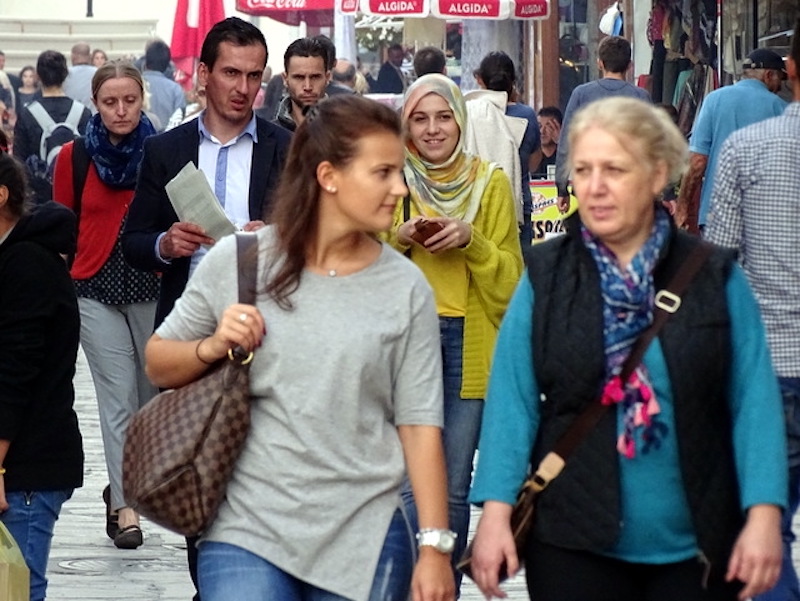
I have been a journalist in North Macedonia for 16 years and for two thirds of that time, my work has been hampered by outdated and wrong official data.
Up until 2022, when the country finally completed an overdue census, not even the head of the statistics office could tell me the exact population. Officially it was 2.1 million, but that number was from 2002, as the country scrapped the 2011 headcount.
In most countries, headcounts are regular operations carried out for practical reasons at ten year intervals. Here, the process raises delicate ethnic issues about the size of the ethnic Albanian community versus the Macedonian majority.
Macedonian nationalists always wanted a result that would show the country’s Albanians were less than 20 percent of the population. It is the threshold that gives Albanians certain rights under the 2001 accord. The Albanian side, as expected, wanted the opposite and has been pushing for including its diaspora members in the census.
In 2011 the country scrapped the census mid-process, realising that nationalists on both sides had probably doctored the numbers so much that nobody would believe the results.
How did that leave us for over a decade? With wrong policies derived from those wrong numbers. So whenever I wrote about the fertility or mortality rate, gross domestic product, economic or social policies, migration, I and everybody else guessed at the true picture.
Now we have the new data. The country has lost nine percent of its population over two decades and now has 1.8 million. Projections say by 2050 we will fall to 1.4 million due to migration and a low fertility rate. Unsurprisingly, the ethnic ratio has not changed much as all equally seem to want to leave.
At the end of the day, ethnic bickering has discredited the process and many do not fully trust the new data. By politicising ethnic ratios we have forgotten why we need a headcount in the first place.
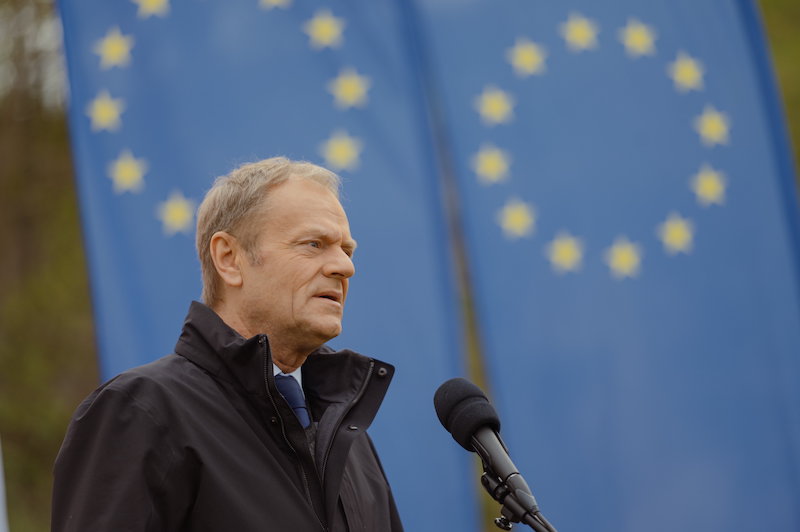
“I have been strongly opposed to so-called ‘forced solidarity’ for years, and while I was still head of the European Council,” said Donald Tusk at the beginning of this year.
The Polish Prime Minister, in power since last December, has the same restrictive view on migration as the previous national-conservative Law and Justice government.
‘Forced solidarity’ is a name given to the EU’s asylum deal where member states are obliged to take asylum seekers to the EU or pay fines.
Poland’s two largest parties are opposed to the migration agreement. The majority of the Polish population is against immigration. At the same time, Poland has invited 100,000s of foreigners from distant countries to work in recent years, due to labour shortage. A visa-scandal has erupted, which is currently being investigated by the Polish parliament. Former government members are suspected of taking bribes to allow easier access to visas for migrants from Africa and Asia.
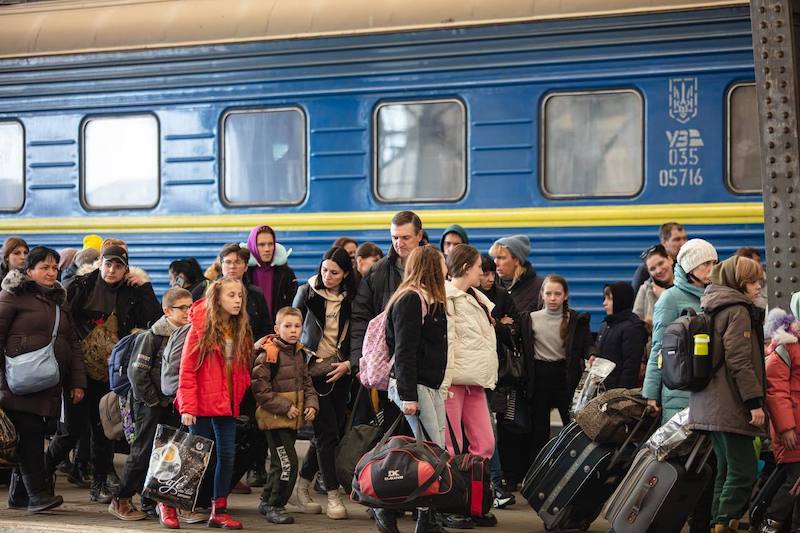
“What is cooler than a family of 44 million?” asks a phrase on a mural in central Kyiv. 44 million was the estimated Ukrainian population before Russia’s full-scale invasion, and the mural, painted after it started, rhetorically appeals to national unity. Despite Ukrainians answering this question with “nothing”, the figure is far from correct – and may always be unreachable.
In almost two years of all-out war, about six million Ukrainians have left the country. Before the invasion, three million were working abroad, where they have mostly stayed since. Each new day they strengthen their ties with their host countries, and lower the chances of ever coming back.
Ukrainian President Volodymyr Zelenskyy understands the negative effects of depopulation. In his New Year’s speech, traditionally perceived as policy-setting, he said a rather controversial phrase: “I wish everyone who is still hesitating [about whether to come back] to make a bold choice next year ― […] to find themselves here, because it’s the only place on earth where we can all say: we are at home.”
Many will probably do otherwise. According to the leading Ukrainian demographer, Ella Libanova, most of those abroad will never come back. During the Balkan wars of the 1990s, a third of the refugees never returned ― and most of those wars ended in less than two years. It’s worth noting that Ukrainian refugees are mostly well-educated. “70 percent of women refugees have finished university. Do you think aging Europe is interested in keeping them there? It definitely is!” Libanova said in a recent speech.
What can be done? A postwar baby boom is not expected: since the 1960s Ukrainian women haven’t been leaning towards having many children. So the key to making a family of 44 million again lies in tolerance of other nationals. Hopefully economic growth will attract people from faraway cultures ― and Ukrainians will have to kindly accept them, says Libanova.
Thanks for reading the 61st edition of European Focus!
As always, we are happy to read your opinion! Especially, as we approach the provisional end of our newsletter project. There are still two more issues and then there will be a longer break. Hopefully, if we win the next round of EU funds, we will be back in the autumn. But for now it is still:
See you next Wednesday!
Teresa Roelcke



